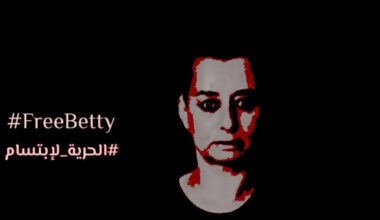When I introduced myself as Lebanese, my neighbour responded with casual certainty: ‘So, you’re an Arab.’ It was not a question, but a statement of fact—one that, in his mind, required no further examination. His assumption was understandable, yet fundamentally flawed. Lebanon, though often lumped with the Arab world, is home to a much older civilisation: the Phoenicians. Their influence, woven into the cultural and historical fabric of my homeland, is far too significant to be dismissed in favour of an imposed identity.
But this conflation is not unique to my neighbour. In the modern world, identity is increasingly shaped by broad political narratives rather than historical or cultural reality. The dominant narrative that Lebanon is an ‘Arab country’ is a political invention, not a historical truth. Lebanon’s inclusion in the Arab world has more to do with geopolitical convenience and postcolonial nationalism than it does with cultural or historical continuity.
In the West, the Middle East is frequently described as a dangerous, war-torn region, or it is the setting for historical stories and fantasies. Conversations on the weather can be combined with small talk about the devastation people are experiencing in Gaza, Lebanon, Syria, and Yemen. War is, indeed, calamitous, and those who experience it suffer for years to come from the damage—physical, emotional, social—that it causes. It is a tragedy of our time that Palestinian people, who were already living in dire conditions, are enduring the unspeakable horror of war after the attack on 7 October 2023 committed by Hamas terrorists.
In a recent development, the Western narrative on the Middle East, which tends to categorise it into two distinct groups—Israel as an oppressor and Arabs as the oppressed—seems to have been challenged by Palestinians chanting against Hamas during anti-war demonstrations in the Gaza Strip. Dissenting voices emerging from Gaza are refuting the stereotypical perception of the region’s complicated politics. It is still astonishing, though, that the politically correct left has chosen to remain silent on the recent developments in Gaza rather than acknowledging the region’s geopolitical complexity and amplifying voices calling for peace.
Such indifference on the part of the Western left is one of the reasons I feel compelled to enlighten a Western audience on the cultural diversity and political intricacies of the Middle East.
Like many Palestinian children, I grew up in a war zone, scarred and bruised. We grew older, married our children, and baptised our grandchildren, but the conflict never seemed to end. Everybody is being impacted by the Middle East war(s), which has been going on for many generations.
We have all experienced the terrible events of war, but just because the Western narrative finds it comforting to lump us all together as ‘Arabs’ shouldn’t mean that we have to give up our heritage and the origins that make us unique and yet relatable.
The Historical Erasure of the Phoenicians
To understand the Lebanese identity crisis, we must begin with history—real history, not the revised version presented in postcolonial Arab nationalism. The Phoenicians, a maritime civilisation that flourished along the eastern Mediterranean, predate the Arab conquests by well over a thousand years. They were not a warlike empire but a trading civilisation, building a vast commercial network that stretched across the Mediterranean, from Cyprus to Carthage to Spain. They were the first great seafarers, their ships navigating treacherous waters long before the Greeks or Romans mastered the art. They were also the inventors of the alphabet, the system of writing that would later be adapted by the Greeks, Romans, and eventually the entire Western world.
Yet, despite their enormous contributions, the Phoenicians have been systematically erased from the historical consciousness. Unlike the Greeks or Romans, they left behind few written records of their own—most of what we know about them comes from the writings of their conquerors. This has allowed successive civilisations to claim their legacy for themselves. The Romans absorbed Phoenician cities into their empire. The Arabs, when they conquered the Levant in the 7th century, absorbed Phoenician descendants into their new Islamic order. And modern Arab nationalists have since rewritten history to portray the Phoenicians as merely a precursor to Arab identity rather than as members of a distinct civilisation in their own right.
The genetic reality tells a different story. Scientific studies have shown that a significant portion of the Lebanese population carries Phoenician DNA. A 2017 genetic study found that more than 90% of modern Lebanese ancestry can be traced back to the region’s ancient inhabitants, including the Phoenicians—far predating the Arab conquests and migrations. While cultural identities evolve, the Lebanese people are not ethnically Arab in the same way that, say, the inhabitants of the Arabian Peninsula are. The Arabization of Lebanon was a consequence of Islamic expansion, not an organic cultural evolution.
Language, Identity, and the Irish Analogy
Some argue that Lebanon’s adoption of the Arabic language is sufficient proof of Arab identity. But language alone does not dictate ethnicity or cultural heritage. The Irish speak English, yet no one would argue they are Anglo-Saxon. Icelanders speak a language descended from Old Norse, yet they are distinct from modern Scandinavians. By this logic, the Jewish people should be considered Arabic simply because Hebrew and Arabic belong to the same Semitic language family—a claim that would be absurd to Jews and Arabs alike.
Consider Egypt, often grouped unquestioningly into the Arab world. While modern Egyptians learn Arabic at school as the official language of the state, they speak Egyptian in their everyday life, as their mother tongue, because their lineage is overwhelmingly ancient Egyptian, not Arab. The Copts, Egypt’s indigenous Christian population, preserve linguistic and cultural elements that long predate the Arab Islamic conquests. Yet, because Arab Islamic colonialism colonised minds as well as lands, the world has come to passively accept Egypt as simply ‘Arab’, erasing its indigenous ancient Egyptian identity just as it has erased Lebanon’s Phoenician heritage. If Egyptians are not Arabs by descent but by historical circumstance, why should Lebanon be any different?
Lebanon’s linguistic Arabization came through Islamic conquest, not cultural assimilation. The Arabic language spread through the region due to Islamic imperialism, just as Latin spread through Western Europe under the Romans. But adopting a language does not erase a people’s past, nor does it rewrite their genetic and historical lineage. Lebanese identity is rooted in a far older past—one that Arab nationalism conveniently ignores.
The Political Invention of Arab Identity
The idea that all Arabic-speaking nations form a singular Arab identity is a relatively modern invention. Arab nationalism emerged in the late 19th and early 20th centuries as a response to European colonialism. It sought to unite the disparate regions of the former Ottoman Empire under a single political, ethnic, and religious identity. This movement was not about historical accuracy but about erasing indigenous cultures and identities to invent a pan-Arab Middle Eastern identity.
Lebanon, however, never fit neatly into this vision. Unlike its neighbours, Lebanon has always been a pluralistic society. It is home to a significant Christian population—Maronites, Greek Orthodox, and others—who resisted Arabization for centuries. Many Lebanese intellectuals in the early 20th century, particularly Christian scholars, argued that Lebanon’s identity was distinct from the broader Arab world. They pointed to the country’s Phoenician roots as proof of this unique heritage.
But political realities soon overshadowed historical truths. As Arab nationalism gained momentum, Lebanon was pressured into adopting the Arab identity. The Arab League, founded in 1945, officially categorised Lebanon as an Arab state, despite ongoing resistance from Lebanese nationalists. The West, eager to simplify Middle Eastern politics, accepted this designation without question. And thus, through decades of repetition, Lebanon became Arab—not by history, not by culture, but by political decree.
Western Narratives and the Erasure of Middle Eastern Complexity
The Western world has played a significant role in flattening Middle Eastern identities. In an era of ideological simplifications, Western discourse tends to divide the world into colonisers and the colonised, oppressors and the oppressed. This framework has shaped how the West perceives the Middle East, reducing its people to a monolithic bloc rather than a collection of diverse cultures with distinct histories.
To Westerners, it is easier to group all Middle Eastern nations under the ‘Arab’ label than to acknowledge the complexity of the region. The same intellectual laziness that treats all African nations as if they are culturally identical applies to the Middle East. When people learn I am Lebanese, they often assume they can relate to me by throwing out a few Arabic words or expressing admiration for Middle Eastern cuisine. But knowing how to say ‘habibi’ or appreciating hummus does not make one an expert on Middle Eastern identity.
The Cost of Forced Identity
The insistence on labelling Lebanon as Arab has had real and damaging consequences. It has eroded national identity, forcing Lebanese people into an ideological framework that many of them do not accept. It has allowed Arab nationalist movements and Islamist groups to exert influence over the country, despite Lebanon’s historical resistance to both. It has also contributed to internal divisions, as Lebanese citizens debate their true cultural identity in the face of political pressures.
The most dangerous consequence, however, is that it has silenced historical truth. By erasing the Phoenician legacy, Arab nationalism has stripped the Lebanese people of their own historical agency. It has forced them into a collective identity that does not reflect their true past. And in doing so, it has made it more difficult for Lebanon to assert its unique place in the world.
The Importance of Reclaiming Identity
Lebanon’s history is not a footnote in Arab history. It is not merely a battlefield in someone else’s war. It is the continuation of an ancient civilisation that shaped the world long before the modern nation-state existed. Recognising this does not mean rejecting Lebanon’s shared history with the Arab world. Rather, it means asserting that Lebanon’s story does not begin and end with it.
We are not Arabs. We are Phoenicians. And that distinction matters.









1 comment
With respect, I think this article risks making some of the same category errors as pan-Arab nationalism, only in reverse. Anchoring modern ethnic identities on ancient peoples is historically fraught.
The Phoenicians were never a single, self-declared nation. They identified by city or region such as Tyre, Sidon, Byblos or Arwad, not as “Phoenicians.” The term is a Greek label, likely linked to the purple dye trade, and their language was a Canaanite dialect. The idea of a unified Phoenician nation is a later Greek and Roman construct.
The same is true of other modern identities in the region. “Palestinian” is a modern political and national identity layered over older, more local histories, not a continuation of a single ancient people. Even modern “Arab” identity is a relatively recent label that covers peoples with diverse ancestries and pre-Islamic histories.
Genetic continuity does not equal cultural or political continuity. Ancient Levantine DNA is spread across the Eastern Mediterranean, and identities have shifted over thousands of years.
Arabisation in Lebanon was not simply imposed by force. It developed over centuries through trade, intermarriage and cultural blending. Arabic language and culture are part of Lebanon’s current reality, and many Lebanese recognise both Arab and Levantine heritage. Those identities are not inherently incompatible. Many modern European nations have similarly complex origins (eg. the French were originally Celtic)
Also, Lebanon’s pluralism is real, but it was not the only society in the region with significant religious diversity or resistance to a homogenised Arab identity. Syria has long been home to sizeable Christian, Druze and Alawite communities, some of which retained distinct languages, traditions and communal identities. Egypt’s Copts preserved a Christian tradition and elements of pre-Arab culture for centuries. Iraq historically had large Christian, Jewish, Yazidi and Mandaean populations alongside its Muslim communities.
What sets Lebanon apart was that it enshrined sectarian power-sharing in its constitution from the start, giving each recognised religious community guaranteed representation. That made pluralism a social fact and the organising principle of the state. But it also meant religion became inseparable from politics, which unfortunately has made the country incredibly unstable.
Your email address will not be published. Comments are subject to our Community Guidelines. Required fields are marked *
Donate